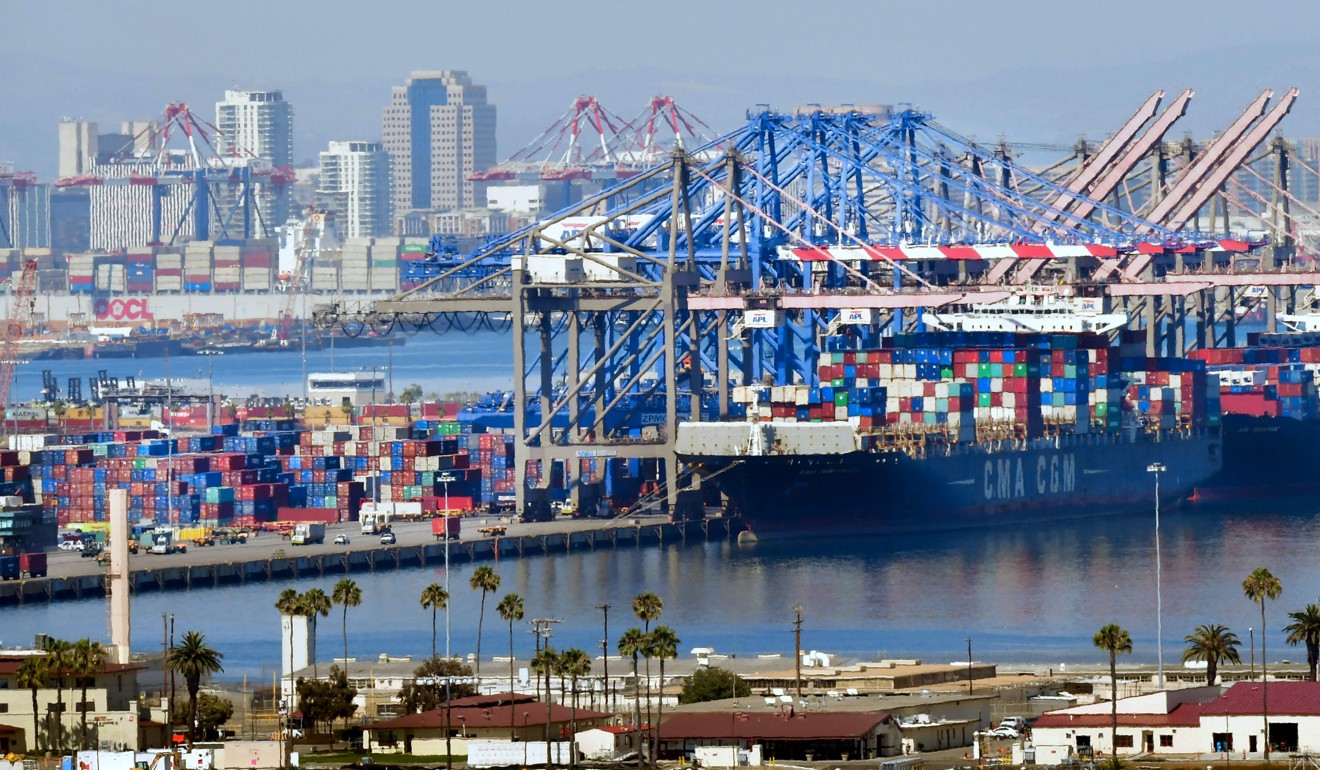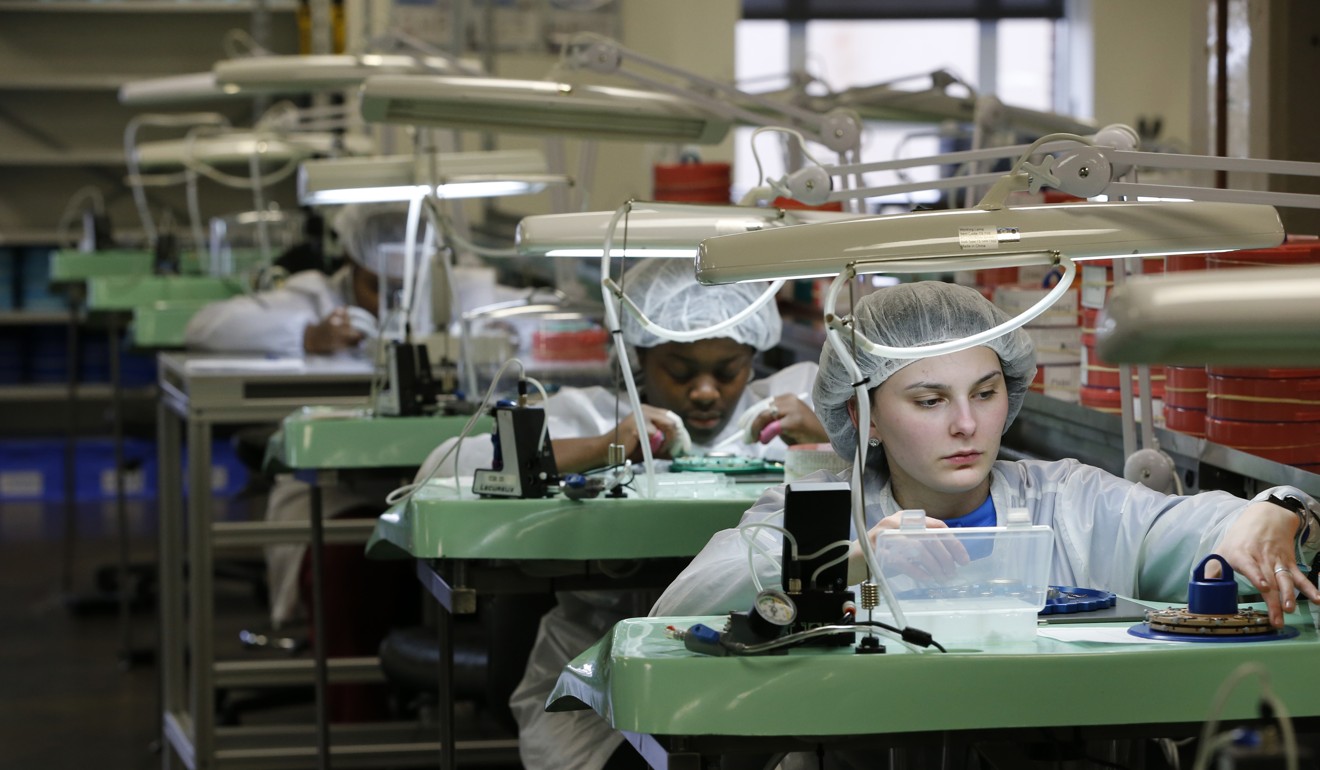
China ‘supports millions of American jobs, makes big profits for US firms’, Beijing says
Both sides have benefited from trade ties, white paper says in response to accusations that China is trying to undermine rival’s manufacturing base
China’s trade and investment with the United States supports millions of American jobs and creates huge profits for its companies, Beijing said this week in a bid to counter Donald Trump’s claims that the country is stealing jobs and eroding the US manufacturing base.
Read: The white paper that Beijing says proves the US benefits from its trade
According to figures from the US-China Business Council cited in the white paper, US exports to China and bilateral investment supported 2.6 million jobs in America in 2015, while Chinese investment in 46 US states created more than 140,000 jobs, mostly in the manufacturing sector.
Fed rate rises + US dollar dominance = a big headache for Beijing
“Trade and economic cooperation has created a large number of jobs in the US … huge business opportunities and significant profits for American business … [and] promoted industrial upgrading,” the document said.
China was also one of the top five markets for US exports of manufactured goods in 2017, it said, while US farmers exported, on average, more than US$10,000 worth of agricultural products to China in the year, the paper said.
The document came as tensions continue to rise in the trade war between the world’s two largest economies. Washington last week extended its tariffs to almost half of all the goods it imports from China, while Beijing hit back by levying extra duties on more US goods and cancelling planned trade talks.
World’s two largest economies diverge as China shuns US Fed move
The document cited the US Consumer Choice Centre as saying that US President Donald Trump’s administration was punishing the American people with its punitive action, saying the tariffs would have a direct impact on 150,000 jobs in North Carolina and 6,500 in South Carolina, both of which are heavily reliant on exports.
William Zarit, chairman of American Chamber of Commerce in China, said that while both countries had benefited from their trade relationship, many US firms had other grievances.
“China says how much the US has benefited,” he said. “There is a lot of truth to that … and at the same time there is also a lot of truth to what the US is saying about protectionism, such as forced technology transfer and IPR violations.”
China ‘in for more tough US talk’ – no matter who wins midterms
Zarit said he expected China to unveil “a comprehensive plan for reform and opening up across a number of industrial sectors on trade and investment”, not out of “tit-for-tat reciprocity, but a general equivalence”.
“It doesn’t need to be a response to US pressure,” he said. “But I hope it will change the momentum and break the current deadlock.”
Despite the spiralling trade war, some US states are continuing to attract Chinese investment.
Last week, Michigan signed a memorandum of understanding with Beijing to cooperate on the production of autonomous vehicles. The state said that since 2011 it had received US$1.2 billion in new investment from China that had helped to create more than 6,300 jobs.

Chen Long, an economist at Gavekal Dragonomics in Beijing, said China and the US had different perspectives on the disputed trade issues.
China’s industrial profit growth slows to five-month low as trade war deepens
China looked more at economic growth and how interaction influenced job creation, while Trump focused on how to bring more jobs to the manufacturing sector, he said.
“China can say we are improving in many areas, such as intellectual property protection, but the US wants more,” he said.
“The trade conflict is continuing to escalate and a deal looks unlikely,” Long said. “China increasingly sees this trade conflict as part of an intensifying long-term rivalry with the US, rather than a short-term dispute.”

Iris Pang, an economist at ING in Hong Kong, said the Chinese document read like the US report that sparked the trade war.
“China’s white paper is doing the same as the US 301 paper, and China wants to stand up as neutral as possible, but the data is highly selective,” she said.
China to cut tariffs on some big-ticket imports as it braces for trade war impact
Both countries had laid out one-sided facts to support their respective positions, she said, adding that if China wanted to make its argument more convincing it should have highlighted the economic structure behind the trade imbalance.
The trade deficit “is not about who steals whose jobs, but it is about economic structure and economic behaviour of consumers and governments in the US”, she said.

